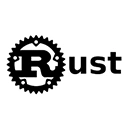In Rust, ownership is a core concept that governs how memory is managed. When working with collections, such as vectors, hash maps, and other data structures, understanding ownership is crucial to avoid issues like dangling references and memory leaks. This guide will explain how ownership works with collections and provide examples to illustrate these concepts.
1. Ownership Basics
In Rust, every value has a single owner, which is the variable that holds the value. When the owner goes out of scope, Rust automatically drops the value, freeing the associated memory. This ownership model applies to collections as well.
Example of Ownership with a Vector
fn main() {
let numbers = vec![1, 2, 3, 4, 5]; // numbers owns the vector
// Passing ownership to a function
print_numbers(numbers); // Ownership of the vector is moved to the function
// println!("{:?}", numbers); // This line would cause a compile-time error
}
fn print_numbers(nums: Vec<i32>) {
for number in nums {
println!("{}", number); // nums is now the owner of the vector
}
}
</i32>Explanation of the Example
- In this example, we create a vector named
numbersthat owns the vector data. - We then pass
numbersto theprint_numbersfunction, which takes ownership of the vector. - After the function call,
numbersis no longer valid, and attempting to access it will result in a compile-time error.
2. Borrowing Collections
Instead of transferring ownership, you can borrow a collection. Borrowing allows you to access the data without taking ownership, which is useful when you want to use the collection in multiple places without moving it.
Example of Borrowing a Vector
fn main() {
let numbers = vec![1, 2, 3, 4, 5]; // numbers owns the vector
// Borrowing the vector
print_numbers(&numbers); // Passing a reference to the vector
// We can still use numbers here
println!("Original numbers: {:?}", numbers);
}
fn print_numbers(nums: &Vec<i32>) {
for number in nums {
println!("{}", number); // nums is a reference to the vector
}
}
</i32>Explanation of the Example
- In this example, we create a vector named
numbersthat owns the vector data. - We pass a reference to the vector (
&numbers) to theprint_numbersfunction, allowing the function to access the data without taking ownership. - After the function call, we can still use
numbersbecause ownership was not transferred.
3. Mutable Borrowing
When you need to modify a collection, you can create a mutable reference. Rust enforces strict rules to ensure that you can have either one mutable reference or multiple immutable references at a time, preventing data races.
Example of Mutable Borrowing
fn main() {
let mut numbers = vec![1, 2, 3, 4, 5]; // numbers owns the vector
// Borrowing mutably
modify_numbers(&mut numbers); // Passing a mutable reference
println!("Modified numbers: {:?}", numbers);
}
fn modify_numbers(nums: &mut Vec<i32>) {
for number in nums {
*number *= 2; // Modifying the borrowed vector
}
}
</i32>Explanation of the Example
- In this example, we create a mutable vector named
numbers. - We pass a mutable reference to the vector (
&mut numbers) to themodify_numbersfunction, allowing the function to modify the data. - Inside the function, we use the dereference operator (
*) to modify each element of the borrowed vector. - After the function call, we can see the changes reflected in the original vector.
4. Conclusion
Understanding ownership and borrowing is essential when working with collections in Rust. By following the ownership rules, you can ensure memory safety and prevent common issues like dangling references. Whether you choose to transfer ownership or borrow collections, Rust's ownership model provides a robust framework for managing memory effectively.

